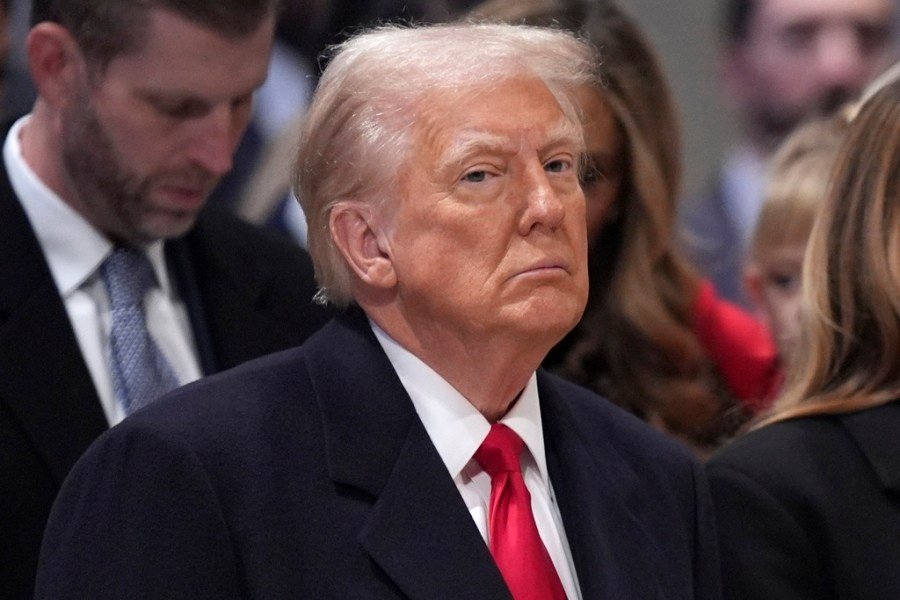On the eve of his inauguration, President Trump took to Truth Social, declaring his intent to bring TikTok back to the United States — deal or no deal with a U.S. buyer. In other words, the man who spent four years sounding alarms about China’s threats scrambled to rescue its most potent Trojan Horse.
This isn’t just a betrayal of his “America First” doctrine — it’s a surrender. For a president who loudly championed national security and American sovereignty, this move reeks of capitulation to the very forces his administration decried as existential threats. TikTok’s parent company, ByteDance, has long faced scrutiny for its ties to the Chinese government.
Allegations of data harvesting and the app’s manipulation of American culture and politics have sparked bipartisan alarm, culminating in a Supreme Court ruling to sever ties with Beijing or shut down U.S. operations altogether — a rare moment of political unity in defense of national security. Trump’s last-minute reprieve undermines this hard-won consensus. It signals to the world that principles bend under the weight of convenience and optics.
But the TikTok saga isn’t just about security — it’s a revelation. It exposes the “America First” mantra as hollow — a cruel deception wielded to rally voters, only to be discarded when inconvenient.
Trump’s inconsistency on national security extends far beyond TikTok. Consider his administration’s arms sales to Saudi Arabia, even after the brutal murder of journalist Jamal Khashoggi. While Trump loudly touted his “America First” mantra, his administration prioritized lucrative arms deals over moral and security concerns, citing economic benefits as justification. This decision not only betrayed America’s values but also emboldened a regime known for human rights abuses and with documented links to funding the 9/11 attacks, further undermining America’s global standing.
Additionally, Trump’s military interventions — or lack thereof — further complicate his “America First” doctrine. While campaigning as a critic of “endless wars,” Trump escalated drone strikes to unprecedented levels, often bypassing the transparency his predecessors maintained.
His administration also oversaw increased military activity in places like Yemen, Syria and Somalia, entangling the U.S. further in conflicts that had minimal direct bearing on American interests. Far from prioritizing America, these actions perpetuated the very “global policeman” role Trump claimed to oppose.
During his first term as president, Trump’s trade war with China was heralded as a bold move to protect American industries and assert economic sovereignty. Tariffs on Chinese imports were framed as a strategic tool to level the playing field, bolster domestic manufacturing, and punish China for unfair trade practices. However, the reality of these policies was a far cry from their populist packaging.
They inflicted significant harm on American businesses, farmers and consumers — while achieving little in terms of tangible victories.
The agricultural sector was among the hardest hit. China’s retaliatory tariffs targeted key U.S. exports, such as soybeans and pork, devastating American farmers who were already operating on thin margins. To pacify the resulting backlash, the Trump administration doled out over $28 billion in bailout funds, effectively forcing taxpayers to shoulder the financial burden of policies meant to protect them. These subsidies, however, failed to address the long-term structural damage inflicted on rural economies, as market share once dominated by American exports was ceded to competitors.
For American consumers, the tariffs were essentially a hidden tax. By increasing the cost of imported goods, from electronics to clothing, the trade war drove up household expenses. Adding insult to injury, Trump has doubled down on this strategy.
In his campaign for a second term, he promised to impose even more tariffs on China, framing it as a continuation of his economic battle against Beijing. But what he fails to acknowledge is that tariffs are not paid by foreign governments; they are paid by importers, which means American businesses and consumers will once again bear the brunt of his policies.
In essence, Trump is promising to “hit” China while knowingly inflicting financial pain on the very citizens he claims to champion.
Despite casting himself as a populist warrior against entrenched elites, Trump’s presidency often revealed a cozy relationship with corporate power, particularly Big Tech. Companies like Google, Amazon and Mata became frequent targets of Trump’s ire, with accusations of political bias and monopolistic behavior. Yet, his administration’s actions were largely superficial, more focused on headline-grabbing feuds than meaningful reform.
For example, while Trump publicly lambasted Amazon and its CEO, Jeff Bezos, for exploiting tax loopholes and dominating e-commerce, his administration took no significant steps to address antitrust concerns. The Federal Trade Commission and Department of Justice investigations into Big Tech were tepid, resulting in few concrete actions. This failure to rein in monopolistic practices left smaller businesses vulnerable and perpetuated the consolidation of power among a handful of corporations.
Moreover, Trump’s signing of the 2017 Tax Cuts and Jobs Act further exemplified his alignment with corporate interests. The legislation slashed the corporate tax rate from 35 percent to 21 percent providing a windfall for tech giants and other large corporations. While proponents argued that the cuts would spur investment and job creation, the reality was a surge in stock buybacks that disproportionately benefited wealthy shareholders rather than ordinary workers.
Trump’s close ties to Larry Fink, the head of BlackRock, also deserve scrutiny. As CEO of the largest asset management firm in the world, with over $10 trillion in assets under management, Fink wields unparalleled financial influence. Trump’s administration leaned heavily on BlackRock during critical moments, particularly in responding to the economic fallout of the COVID-19 pandemic.
The firm was entrusted with managing the Federal Reserve’s bond-buying program, effectively giving it unprecedented control over public funds and the direction of U.S. economic policy. This arrangement handed BlackRock the power to decide which companies received financial lifelines, a move that further entrenched corporate monopolies while leaving small businesses to fend for themselves.
Rather than supporting Main Street, this partnership fortified the dominance of Wall Street’s most powerful players. It deepened economic inequality and undermined the very principles of populism Trump claimed to champion.
That swamp Trump so often denounces? BlackRock doesn’t just swim in it — they own it.
The same hypocrisy fuels his TikTok lifeline. By propping up a platform labeled a legitimate national security threat, Trump prioritizes political convenience and corporate interests over the nation’s safety. If Trump genuinely intends to uphold his populist promises, he must abandon any reprieve for TikTok and take decisive action to protect U.S. national security. Anything less not only shatters the credibility of his doctrine but also jeopardizes the very people he vowed to defend.
John Mac Ghlionn is a writer and researcher who explores culture, society and the impact of technology on daily life.


